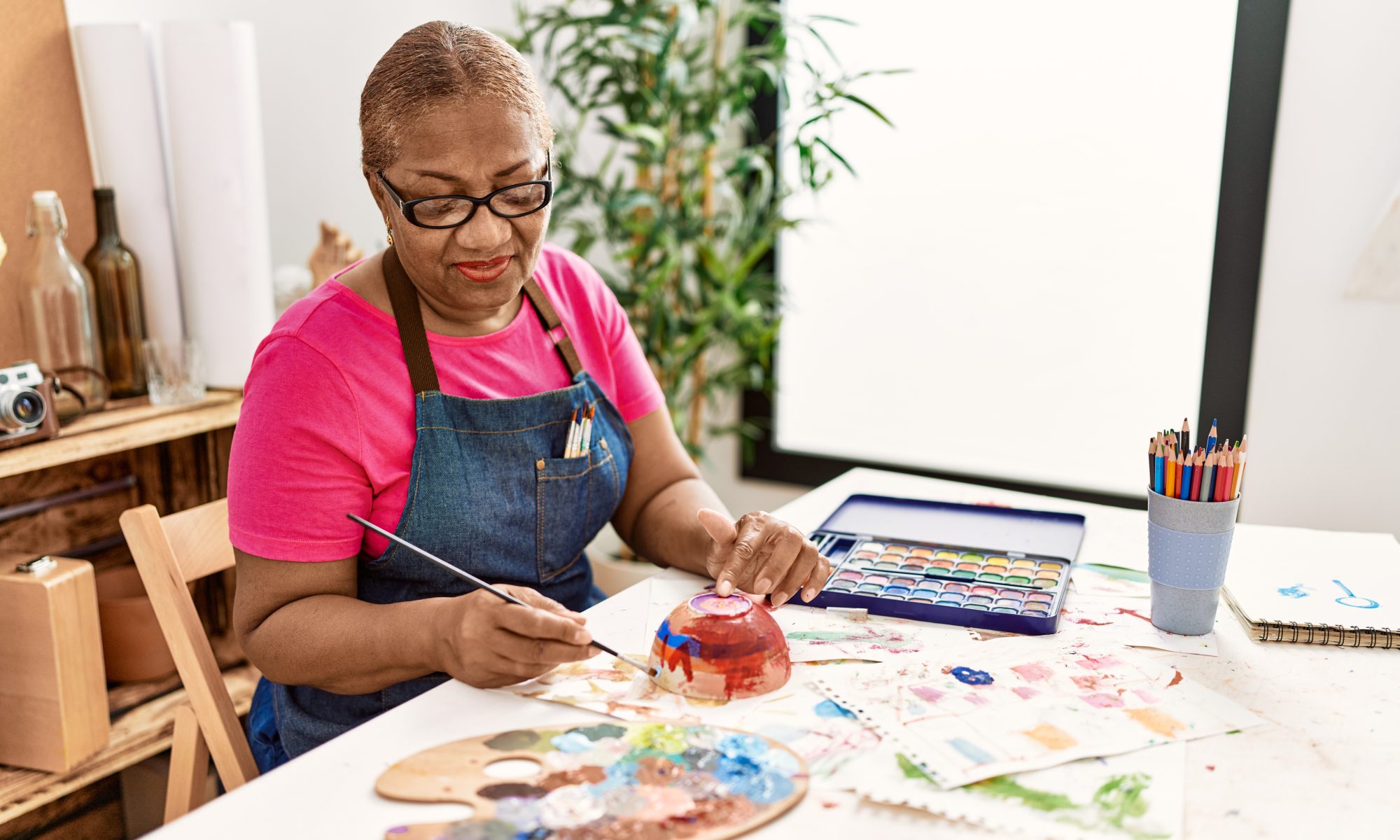
Table of Content
Art therapy is a dynamic and creative approach that bridges the worlds of art and mental health to boost wellbeing. Beyond its emotional benefits, art therapy is gaining recognition for its ability to enhance cognitive function in seniors. Let’s explore how art therapy supports brain health and cognition.
What Art Therapy Involves
Art therapy is a therapeutic technique that uses making art as a form of expression and healing. Guided by professional art therapists, individuals engage in activities like painting, drawing, or sculpting to communicate thoughts, address emotions, and achieve mental clarity. Unlike traditional talk therapy, art therapy focuses on creativity as a means to access deeper layers of the mind and foster cognitive connections.
Enhancing Cognitive Skills through Creativity
Art therapy exercises various regions of the brain, promoting cognitive health through creative engagement. For example:
- Problem-solving – Art projects often require individuals to interpret abstract concepts or solve visual challenges, which strengthens problem-solving skills.
- Memory and recall – Activities like drawing from memory or recreating past experiences engage areas of the brain tied to memory retention and recall.
- Focus and concentration – Making art encourages sustained attention focused on a single activity, which can increase concentration and mental stamina over time.
These cognitive benefits make art therapy a valuable tool for people recovering from brain injuries, older adults with memory concerns, and even professionals seeking better mental performance.
Seniors can also benefit from the help of professional caregivers with training in methods designed to boost cognitive health. If your senior loved one needs help managing an illness or assistance with daily tasks, make sure you choose a top-rated provider of elder care. Home Care Assistance is here to help your loved one live a happier and healthier life in the golden years. From the mentally stimulating activities in our Cognitive Therapeutics Method to our friendly Care Managers who are available to answer your questions 24 hours a day, we offer a wide array of high-quality at-home care services.
Supporting Cognitive Function in People with Neurological Conditions
Art therapy is particularly effective for individuals with neurological conditions. It can support those coping with Alzheimer’s, dementia, or Parkinson’s disease by stimulating brain activity in unique ways:
- Alzheimer’s and dementia – Creating art helps individuals with memory impairment express themselves nonverbally, bypassing the need for words.
- Parkinson’s disease – The rhythmic and repetitive motions of some art forms, like knitting or sketching, increase fine motor skills and hand-eye coordination.
- Stroke recovery – For stroke survivors, engaging in art therapy can aid neuroplasticity, the brain’s ability to form new neural connections and pathways.
Art therapy not only boosts cognitive function but also provides a sense of purpose and self-expression, which contributes significantly to overall brain health.
If your loved one has been diagnosed with dementia, a professional caregiver can be a wonderful source of support. Aging in place can present a few challenges for seniors living with dementia. However, they can still live independently at home with the help of professional dementia care. Philadelphia families can rely on Home Care Assistance to provide their elderly loved ones with mental and social stimulation, timely medication reminders, assistance with meal prep, and much more. Our caregivers are available around the clock to help your loved one live a happier and healthier life.
Emotional Regulation and its Link to Cognitive Health
Creativity not only sharpens mental function but also regulates emotions, which plays a key role in brain health. Stress, anxiety, and depression can impair cognitive abilities over time. Through activities like painting or sculpting, individuals can:
- Release pent-up emotions in a constructive manner
- Lower stress hormones like cortisol, which can affect memory and focus
- Boost mood, fostering a more positive mental state conducive to better brain function
By addressing emotional wellbeing, art therapy indirectly strengthens cognitive health, providing a holistic approach to mental fitness.
Why Art Therapy Works for All Ages
Art therapy benefits both children and adults, providing tailored cognitive advantages depending on life stage:
- Children – For kids, art therapy enhances developmental skills like spatial awareness, fine motor control, and creative thinking. It can also help those with ADHD or learning disabilities by increasing focus and self-regulation.
- Adults – Adults often use art therapy as a stress-relief outlet and a way to stimulate problem-solving abilities in their professional or personal lives.
- Seniors – For older adults, art therapy is a lifesaver, stimulating cognitive functions like memory, attention, and reasoning, while also combating isolation and boredom.
Art’s accessibility makes it an excellent outlet for every age group, offering unique cognitive benefits tailored to different needs.
If you’re caring for a senior loved one who is showing signs of cognitive challenges, you can gain peace of mind by adding a compassionate professional caregiver to your family’s caregiving team. Not every senior has the same care needs, which means they don’t all need the same type of home care. Philadelphia families can rely on Home Care Assistance to provide individualized care plans to meet their elderly loved ones’ unique care needs. Our holistic Balanced Care Method was designed to help seniors focus on healthy lifestyle habits such as eating nutritious foods, exercising regularly, and maintaining strong social ties, and our Cognitive Therapeutics Method offers mentally stimulating activities that can boost cognitive health and delay the onset of dementia. To talk to one of our friendly Care Managers and create a customized senior care plan, call us at (215) 645-4663.